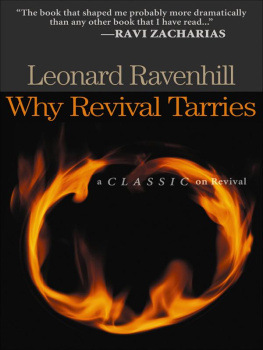Roman Rosen (baron) - Revival: Forty Years of Diplomacy (1922)
Here you can read online Roman Rosen (baron) - Revival: Forty Years of Diplomacy (1922) full text of the book (entire story) in english for free. Download pdf and epub, get meaning, cover and reviews about this ebook. year: 2017, publisher: Routledge, genre: Religion. Description of the work, (preface) as well as reviews are available. Best literature library LitArk.com created for fans of good reading and offers a wide selection of genres:
Romance novel
Science fiction
Adventure
Detective
Science
History
Home and family
Prose
Art
Politics
Computer
Non-fiction
Religion
Business
Children
Humor
Choose a favorite category and find really read worthwhile books. Enjoy immersion in the world of imagination, feel the emotions of the characters or learn something new for yourself, make an fascinating discovery.
- Book:Revival: Forty Years of Diplomacy (1922)
- Author:
- Publisher:Routledge
- Genre:
- Year:2017
- Rating:4 / 5
- Favourites:Add to favourites
- Your mark:
- 80
- 1
- 2
- 3
- 4
- 5
Revival: Forty Years of Diplomacy (1922): summary, description and annotation
We offer to read an annotation, description, summary or preface (depends on what the author of the book "Revival: Forty Years of Diplomacy (1922)" wrote himself). If you haven't found the necessary information about the book — write in the comments, we will try to find it.
Revival: Forty Years of Diplomacy (1922) — read online for free the complete book (whole text) full work
Below is the text of the book, divided by pages. System saving the place of the last page read, allows you to conveniently read the book "Revival: Forty Years of Diplomacy (1922)" online for free, without having to search again every time where you left off. Put a bookmark, and you can go to the page where you finished reading at any time.
Font size:
Interval:
Bookmark:


ALFRED A KNOPF
MCMXXII
UNWIN BROTHERS, LIMITED, THE GRESHAM PRESS, LONDON AND WOKING
The first DumaOpening by the EmperorReception of his speechAmbassador Meyers reportThe Cadet PartyStolypin becomes Prime MinisterGovernment incapacityThe Wyborg ManifestoPolitical inexperienceIswolsky and the EmperorThe Socialist RevolutionariesAn abominable crime.
Stolypin and the agrarian questionRevolutionary movementsDiscontent of the peasantryCommunal ownershipThe second DumaRussian expansionPolandFinlandThe Baltic Provinces Diplomatic achievements.
Assassination of StolypinAm appointed member of the Council of the EmpireThe situation in EuropeHistorical developmentsCongress of ViennaBalance of PowerIntroduction of conscriptionThe League of NationsNationalismItalyPolandPrussiaThe BalkansAustria-Hungary
Forebodings of a European warRussias handicapsRailways-Munition factoriesThe bureaucracyKokovtseff as Prime Minister Iswolsky The Balkan League An anonymous attackMy secret memorandum to the EmperorMy German nameThe Great Slav Idea.
Pan-SlavismAustrian SlavsConstantinople and the StraitsBritish apprehensions Folly of Russian ambitions Importance of neutralizing the StraitsRussias real missionRivalry of the Great PowersFate of my MemorandumGerman influence.
The principle of nationalitiesThe ChurchThe influence of languageInternationalismPosition in the BalkansThe London ConferenceMr. HartwigTreaty of BucharestFinlandThe Tsar and his letterPolandLittle RussiaUkrainaMy speech in the Upper House.
On the brinkSatanism and the world orderTsardomGoremykin as Prime MinisterScene in the DumaKerenskyA Press campaignRusso-German antagonismDeutschtumMy last interview with the Emperor NicholasAssassination of Archduke Franz FerdinandProgress of eventsA glimmer of hopeThe die is cast.
Earl Loreburns viewsThe situation on July 30, 1914-Russian mobilizationDeclaration of warFeeling in RussiaAttack on German EmbassyTreatment of Poland and FinlandInvasion of East PrussiaTannenbergMy article for the Associated PressA letter from Roosevelt.
The question of mobilizationWar passionsWar propagandaDeclaration of LondonOpportunity for a League of NeutralsDisorganization in RussiaThe Tsar and a separate peaceRasputinThe Grand Duke NicholasThe Progressive Bloc.
Goremykin is succeeded by StuermerA Peace without victoryMy political faithA memorandum for the EmperorAttempt to detach TurkeyVisit to EnglandTalk with Mr. Asquith Importance of peace to RussiaProtopopoffSituation in Russia
Foreign influences in Russia-Trepoff as Prime Minister-Interviews with PokroffskyAn Imperial orderVisit of Lord Milner and others-Causes of the RevolutionThe SovietInterview with KerenskyFruitless effortsAmerican mission at Petrograd.
First news of the RevolutionSome personal experiencesAm offered Governorship of FinlandSituation in FinlandBlindness of the AlliesMy efforts towards peace.
Korniloffs rising and its failure-Russian political parties-The Soviet and the Provisional GovernmentThe DumaKerensky and his partyCommunications from Allied AmbassadorsThe two Socialist parties-Allies attitude to RussiaFurther efforts towards peace.
BolshevismIts origin and dangersTrotzkys statementGerman influenceWe escape from RussiaAt MurmanskAdmiral KempVisit to BerlinConditions therePrivy Councillor KriegeAt StockholmReflectionsThe end.
Font size:
Interval:
Bookmark:
Similar books «Revival: Forty Years of Diplomacy (1922)»
Look at similar books to Revival: Forty Years of Diplomacy (1922). We have selected literature similar in name and meaning in the hope of providing readers with more options to find new, interesting, not yet read works.
Discussion, reviews of the book Revival: Forty Years of Diplomacy (1922) and just readers' own opinions. Leave your comments, write what you think about the work, its meaning or the main characters. Specify what exactly you liked and what you didn't like, and why you think so.







